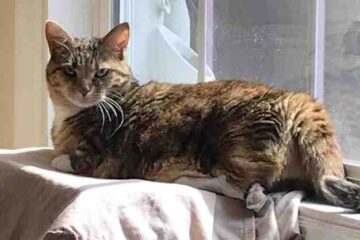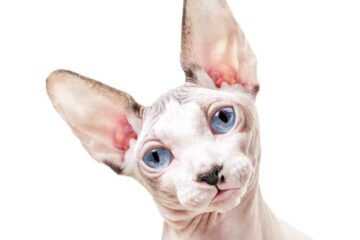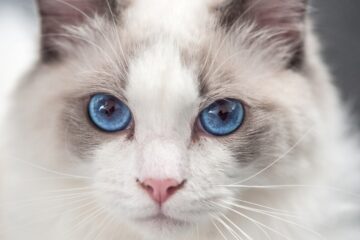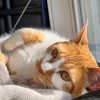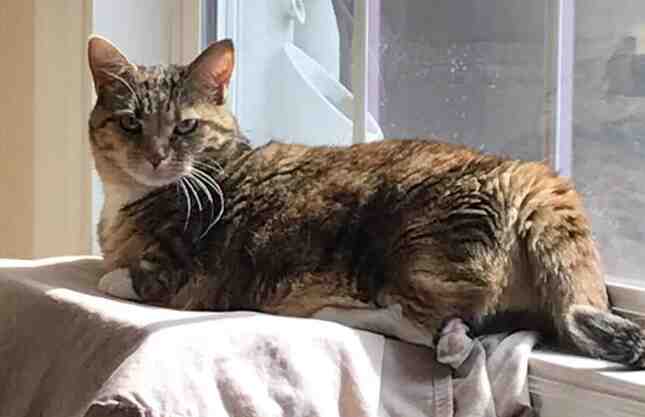
Munchkin Cat Breed Profile
Introduction
Munchkin cats are a unique and adorable breed known for their short legs and playful personalities. Despite their diminutive stature, these cats are full of energy and curiosity, often surprising their owners with their agility and speed. Munchkin cats are friendly, affectionate, and social, making them excellent companions for families and individuals alike. With their distinctive appearance and charming demeanor, Munchkin cats have captured the hearts of many cat lovers around the world.
Munchkin Cat Breed Facts
- Country of Origin: United States
- Breed Group or Category: Short-legged
- Height: 5-7 inches
- Weight: 5-9 pounds
- Lifespan: 12-15 years
- Average Price: $500-$3,000
- Hypoallergenic: No, moderate shedding
- Good with Kids: Yes, very good with children
- Good with Other Pets: Yes, generally friendly with other cats and dogs
Munchkin Cat Breed History
The Munchkin cat breed originated in the United States and gained recognition in the early 1990s. The breed’s distinctive short legs are the result of a natural genetic mutation. The first known Munchkin cat was discovered in Louisiana in 1983 by a music teacher named Sandra Hochenedel. She found two pregnant cats with unusually short legs, one of which she kept and named Blackberry.
Blackberry’s kittens inherited her short legs, and Hochenedel gave one of them to a friend, who named it Toulouse. These cats became the foundation of the Munchkin breed. Through selective breeding, the breed was developed to enhance their unique physical characteristics while maintaining a healthy and robust genetic pool. The breed was officially recognized by The International Cat Association (TICA) in 1994.
Munchkin Cat Personality
Munchkin cats are known for their playful, outgoing, and affectionate nature. Despite their short legs, they are very active and enjoy running, jumping, and exploring their environment. These cats have a kitten-like personality throughout their lives, often engaging in playful antics and interactive games with their owners.
Munchkins are highly social and thrive on human interaction. They form strong bonds with their families and enjoy being involved in daily activities. Their friendly and curious nature makes them excellent companions for children and other pets. Munchkin cats are also known for their intelligence and can be trained to perform tricks and follow commands.
These cats are typically not very vocal, but they do communicate with their owners through soft meows, purrs, and body language. Their affectionate nature means they enjoy cuddling and will often seek out their owners for attention and petting.
Munchkin Cat Appearance
The most distinctive feature of the Munchkin cat is its short legs, which are caused by a genetic mutation known as achondroplasia. Despite their short stature, Munchkins have a well-proportioned body with a muscular build. Their short legs do not hinder their mobility, and they are known for their agility and speed.
Munchkin cats come in a variety of coat lengths, colors, and patterns. Their coat can be short or long, with the long-haired variety often having a silky, plush texture. Common coat colors and patterns include solid, tabby, bicolor, and tortoiseshell. Their eyes are large and expressive, and can come in any color. The ears are medium to large, set wide apart, and rounded at the tips, giving them an alert and curious expression.
Munchkin Cat Health Concerns
Munchkin cats are generally healthy, but like all breeds, they can be prone to certain health issues. Responsible breeders screen for these conditions to reduce their prevalence.
- Lordosis: A condition where the spine curves excessively inward, which can affect breathing and mobility.
- Pectus Excavatum: A deformity of the chest where the breastbone is sunken, potentially impacting respiratory function.
- Joint Issues: Due to their short legs, Munchkins may be prone to arthritis and other joint-related issues as they age.
- Obesity: Munchkin cats can be prone to weight gain, which can exacerbate joint problems and lead to other health issues.
Munchkin Cat Exercise Needs
Munchkin cats are active and playful, requiring regular exercise to stay healthy and happy. Despite their short legs, they enjoy running, climbing, and jumping. Providing them with plenty of toys, climbing structures, and interactive play sessions can help meet their exercise needs.
Regular playtime with their owners is essential to keep Munchkin cats mentally and physically stimulated. Toys that encourage hunting and chasing, such as feather wands and laser pointers, are particularly popular with this breed. Ensuring they have enough space to explore and play is also important for their overall well-being.
Munchkin Cat Training and Behavior
Training a Munchkin cat can be a rewarding experience due to their intelligence and eagerness to interact with their owners. They can learn commands, tricks, and even how to walk on a leash. Positive reinforcement methods, such as treats and praise, work best when training Munchkin cats.
Behaviorally, Munchkins are known for their friendly and affectionate nature. They are typically good with children and other pets, making them ideal for multi-pet households. Ensuring they have enough mental and physical stimulation can prevent any behavioral issues related to boredom. Providing scratching posts and engaging toys can help keep them entertained and prevent destructive behaviors.
Munchkin Cat Grooming Needs
Munchkin cats have moderate grooming needs that vary depending on their coat length. Short-haired Munchkins require weekly brushing to remove loose hair and keep their coat healthy. Long-haired Munchkins may need more frequent brushing, typically two to three times a week, to prevent matting and tangling.
Routine grooming should also include regular dental care, such as brushing their teeth and providing dental treats. Regular nail trimming and ear cleaning are also important aspects of their grooming routine. Bathing is rarely necessary, but occasional baths can help keep their coat clean, especially for long-haired varieties.
Munchkin Cat Care Needs
Caring for a Munchkin involves meeting their physical, mental, and emotional needs. These cats thrive on social interaction and should not be left alone for long periods. Providing plenty of attention, playtime, and companionship is crucial for their well-being.
A balanced diet is essential to keep Munchkins healthy. High-quality cat food that meets their nutritional needs should be provided, along with fresh water at all times. Monitoring their weight is important to prevent obesity, which can exacerbate joint issues. Regular veterinary check-ups are also important to monitor their health and address any potential issues early.
5 Frequently Asked Questions about Munchkin Cats
- Are Munchkin cats hypoallergenic? No, Munchkin cats are not hypoallergenic. They shed moderately and produce dander, which can cause allergic reactions in some people.
- Do Munchkin cats get along with other pets? Yes, Munchkin cats are generally friendly and can get along well with other pets, including dogs and other cats, especially if they are socialized from a young age.
- How vocal are Munchkin cats? Munchkin cats are typically not very vocal, but they will communicate with their owners through soft meows, purrs, and body language.
- Are Munchkin cats good with children? Yes, Munchkin cats are known for their playful and gentle nature, making them excellent companions for children.
- What is the average lifespan of a Munchkin cat? Munchkin cats have a lifespan of 12 to 15 years with proper care.
Is the Munchkin Cat the Right Breed for You?
Munchkin cats make wonderful pets for those who can provide them with the attention, care, and interaction they need. They are best suited for families or individuals who are home often and can engage with them regularly. Their playful and affectionate nature makes them an ideal companion for families with children and other pets.
If you are looking for a unique and loving pet that enjoys playtime and social interaction, a Munchkin cat may be the perfect choice. However, if you prefer a more independent or less active pet, another breed might be more suitable. With the right care and attention, a Munchkin cat can be a delightful and rewarding addition to your home.
Further Reading
- The Cat Fanciers’ Association – Munchkin
- The Cat Fanciers’ Association provides comprehensive information about the Munchkin breed, including its history, personality, and care tips.
- VetStreet – Munchkin Cats
- VetStreet offers a detailed guide on Munchkin cat care, covering health concerns, temperament, and grooming needs.
- International Cat Care – Munchkin
- International Cat Care provides expert advice on the health, behavior, and grooming of Munchkin cats.
Thank you for your interest in our Munchkin cat breed profile.
Popular Posts
